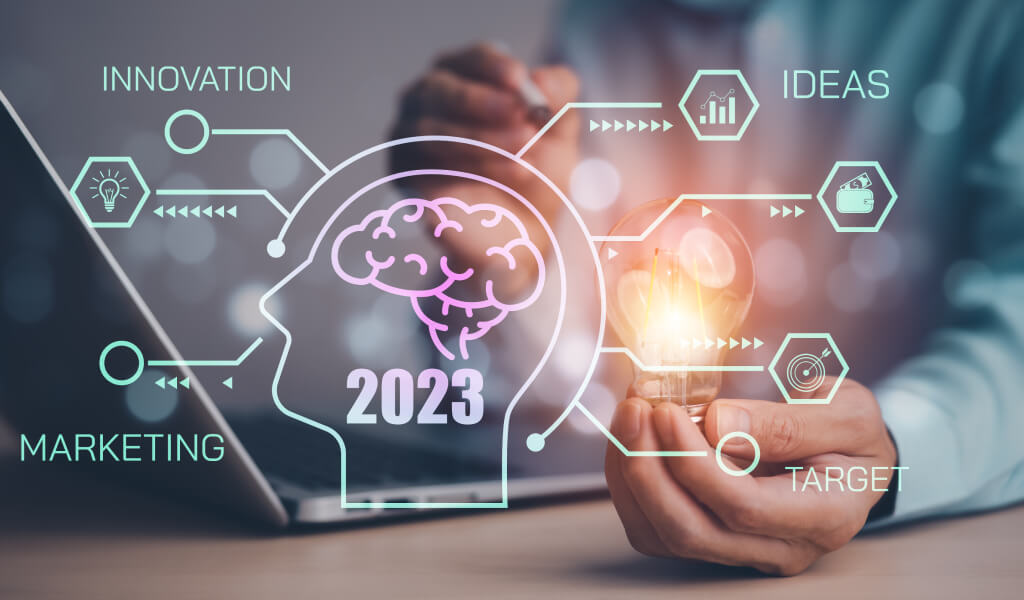Irrespective of the size of the organization, the importance of human capital investments is paramount. Therefore, it’s important that HR leaders transition into adopting agile digital technologies to inspire a future-ready workforce. Although the pandemic had forced emerging SMBs and large enterprises to reluctantly move towards change, the future is promising. From cloud-based recruitment models to personalized training solutions, the core focus is on facilitating a fantastic employee experience.
Moving towards the post-pandemic era, HR leaders have the sole responsibility of bridging the gap between conventional workforce acquisition models and future-proof technological advancements. On the bright side, investing in HR tech platforms can help leaders and organizations pave the way for innovation across diverse business units.
According to a survey by Gartner, 68% of HR leaders say their priorities lie in building critical skills and competencies, 46% believe in organizational design and change management and 44% of HR leaders will prioritize their current and future leadership bench.
This is a clear indication for forward-thinking enterprises to leverage digital technologies, thus design competency-based learning solutions.
To delve deeper into the potential of human resources in the future,
Here are 5 Major Success Factors for HR Leaders:
1. Digital Transformation Through Learning and Development
For an enterprise to gain a competitive advantage and facilitate a sustainable working environment, it’s important that the workforce is inspired and focused on personal development. The best way to achieve this is to ensure that L&D goals are perfectly aligned with organizational objectives.
Relying on conventional workforce management solutions can compromise speed, accuracy and overall experience. For example, if your workforce attends hours of physical training sessions, the essence of a flexible work environment is lost. Incorporating digital solutions into your HR systems can make the experience streamlined and better tailored to employee expectations.
For example, Zing Learn, an in-house Learning Management System by ZingHR, offers the necessary flexibility and independence so your workforce can learn at its own pace and invest in micro-learning models to enhance core skills as well as focus on self-development.
This will in turn improve employee engagement and collaboration to keep your workforce future-ready and digitally-driven.
2. Recruitment as a Core Business Strategy
Hiring as a process should not considered as a separate business function, irrespective of the size or nature of the organization. For innovation-led HR leaders, core priorities must centre on a workforce-centric approach. Rather than accumulating endless paperwork for candidate applications, shifting towards automated processes will drive the best possible outcome.
At the end of the day, it’s all about enhancing the experience of onboarded candidates. Without customizing the experience for the employee, core business objectives become far-fetched. To make this a living reality, digital recruitment solutions must be an integral part of a future-proof hiring framework.
For example, Digital Onboarding solutions can help HR leaders streamline the recruitment process and offer a customized experience to candidates. Furthermore, with the help of future-ready technologies like Robotic Video Interviews and AI-powered Chatbots, screening candidate applications becomes that much easier. Also, with the help of facial recognition technologies, recruiters can study candidate mannerisms and behavior, ensuring effective hiring practices.
3. Bridging the Gap Between Existing and Future Leadership
It’s important that HR leaders focus on preparing for the future. According to a survey by Gartner, only 44% of employees would trust their top-line management in times of crisis. Also, this goes to show that without a reliable and robust leadership structure, traversing through challenging times can never be a productive experience.
Therefore, it’s important for HR leaders to analyse current requirements and bridge the gap between existing and future leadership styles. Here is where the importance of diversity and inclusion comes into the picture. When there is a perfect mix of men and women as a part of the senior-level management, innovation is inevitable because rich ideas come from diverse experiences and perspectives. Therefore, it’s important that enterprises invest in acquiring diverse talent across the board to build a team of competent leaders.
4. Focusing on Employee Safety and Wellness
As leaders, it’s critical to focus on the wellbeing of your workforce. Investing in human capital is no less than investing in the future of your organization. Without people, it serves no purpose to automate business processes using state-of-the-art HR tech.
With the pandemic behind us, it’s the perfect time for HR leaders to focus on the happiness quotient of every employee. Stepping into the post-pandemic era, organizations must invest in digital collaboration solutions that can enhance the effectiveness of peer-to-peer collaboration models. Especially with remote and hybrid workforce models, HR leaders must incorporate a sense of reliability and flexibility from the get-go.
Only when your organization truly values the perspectives and opinions of the workforce, will there be room for growth, progress and innovation. From taking care of their physical and mental well-being to offering tangible health benefits like insurance for critical illnesses, every thoughtful action contributes to a committed workforce.
5. Celebrating Employee Experience
One other important success factors for HR leaders is to plan on enhancing overall employee experience. Designing business strategies that are tailored to improve the employee life cycle is a critical ingredient for every HR leader to facilitate transformation at the highest level.
Digitizing employee engagement solutions empowers organizations to implement a culture built on trust and teamwork. Be it working from office or a remote location, cloud-based HCM technologies can assist enterprises and HR leaders better understand their employees to facilitate an inspiring experience.
6. ZingHR – Driving Innovation Through Technology
Living in a digital-ready world, it’s important to constantly strive for innovation. This not only gives organizations the competitive edge but also assists HR leaders to tackle disruptions seamlessly. Although integrating AI-driven technologies across diverse business processes is important, doing it yourself is a risky choice. This is why it’s considered a good idea to partner with seasoned technology partners for a seamless experience.
ZingHR is a forward-thinking enterprise that is focused on empowering SMBs and large enterprises unlock their potential for growth using cloud-based HCM technologies. From digital recruitment models to workforce productivity and AI-driven talent engagement solutions, choosing ZingHR as your technology partner is certain to inspire your workforce and most importantly, help HR leaders design a future-proof framework.
Visit www.zinghr.com for more details on our suite of solutions. Want to know how we can help your enterprise? Click here to book a demo.




